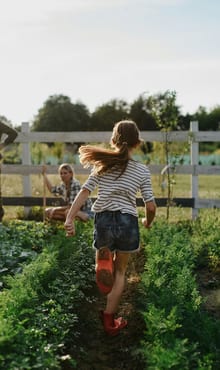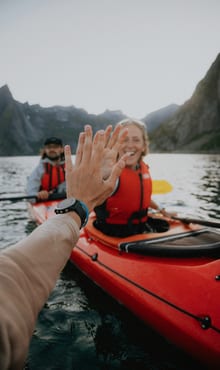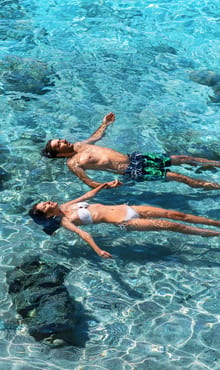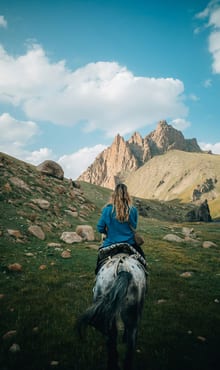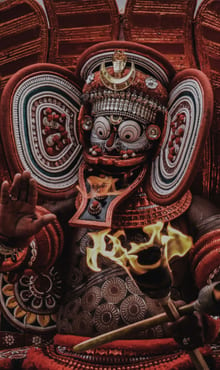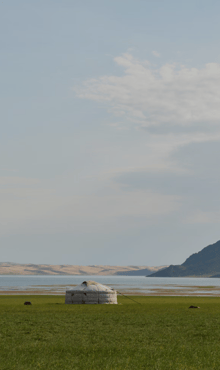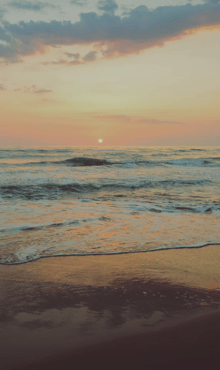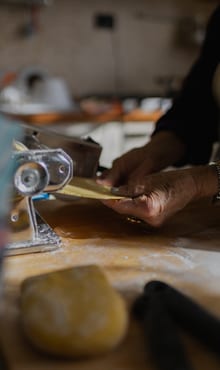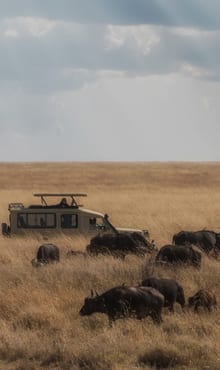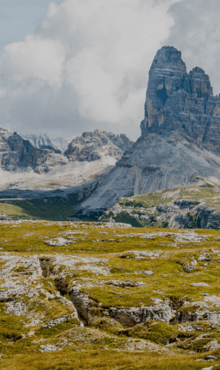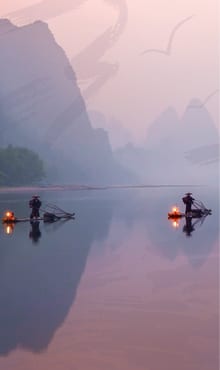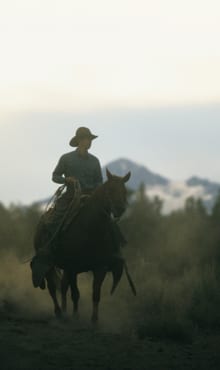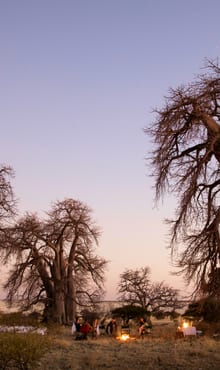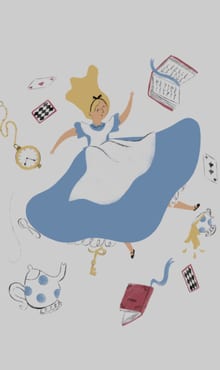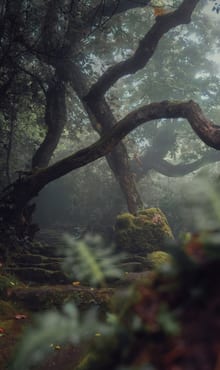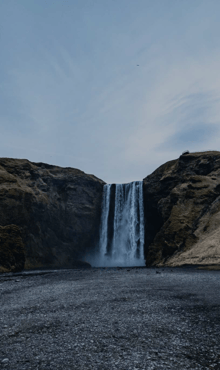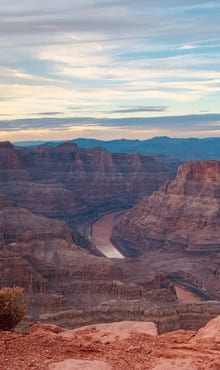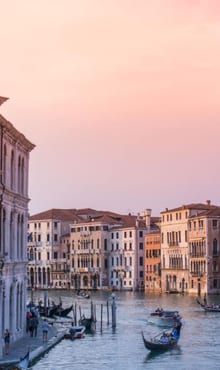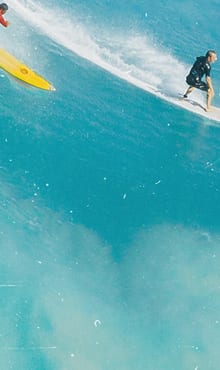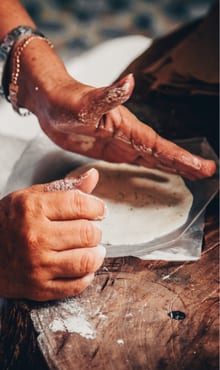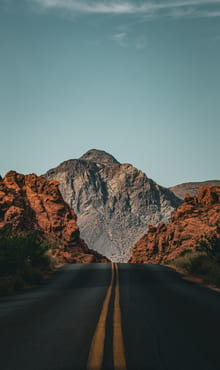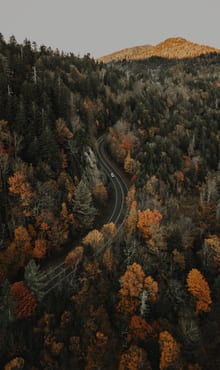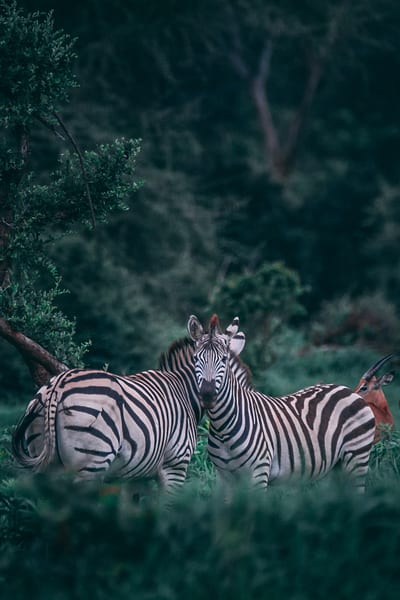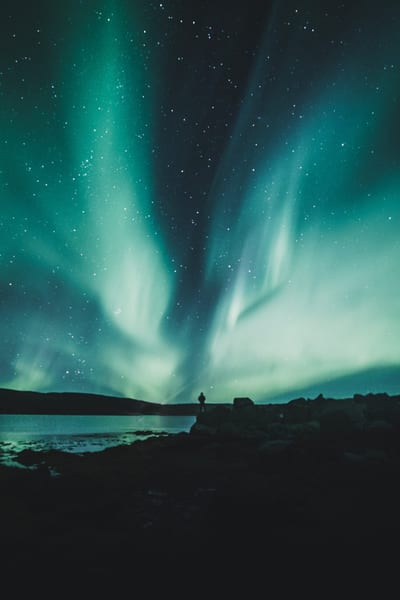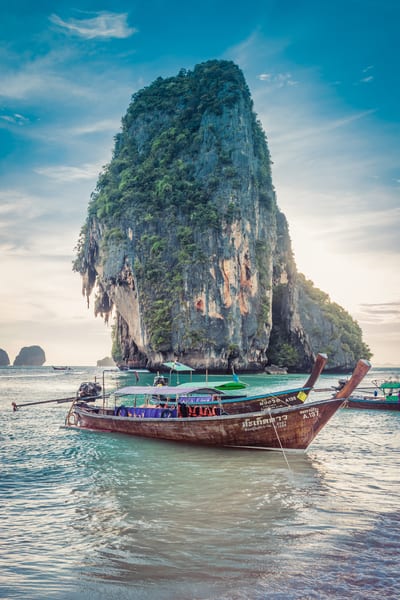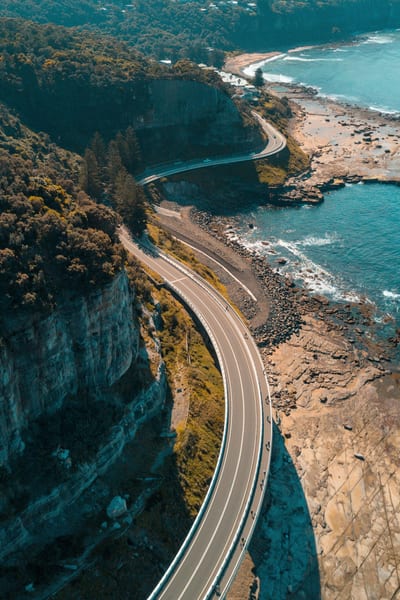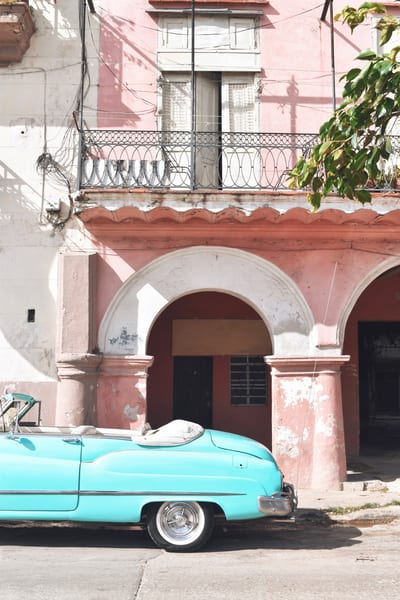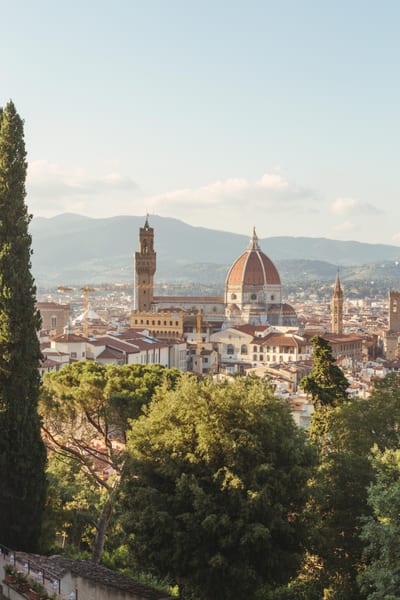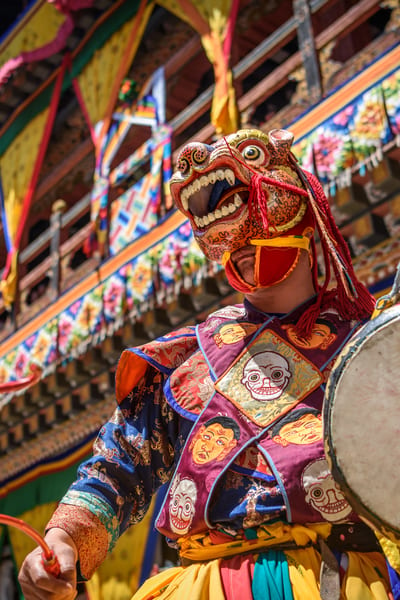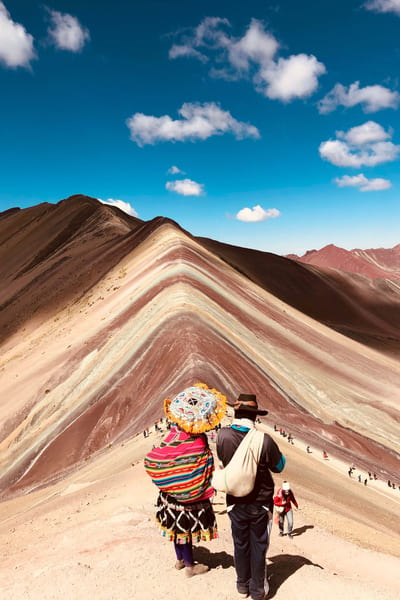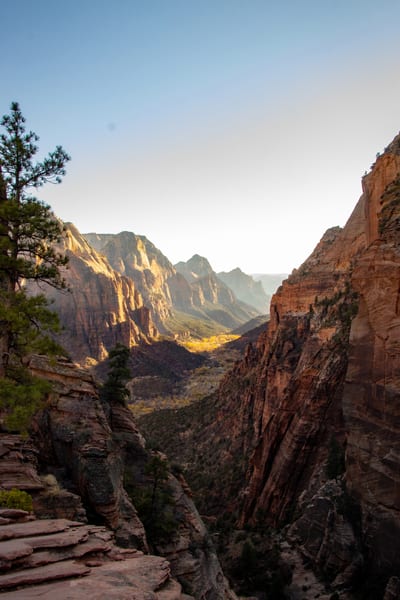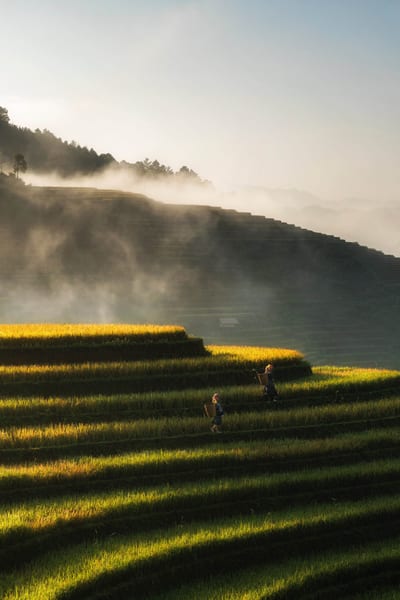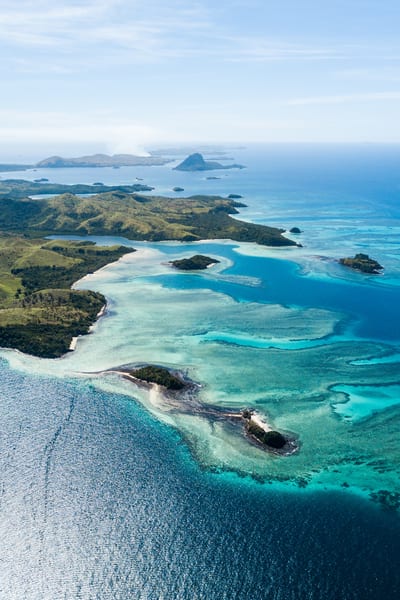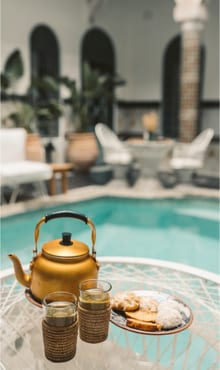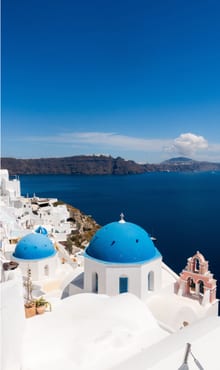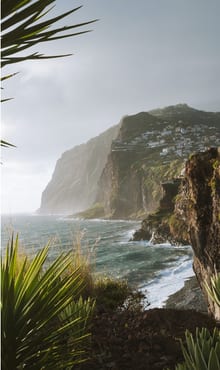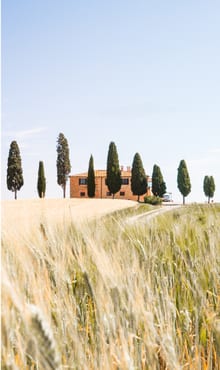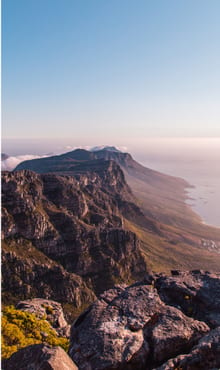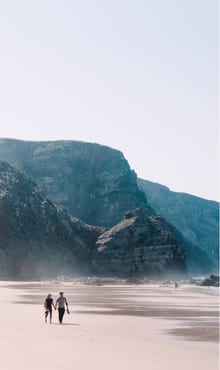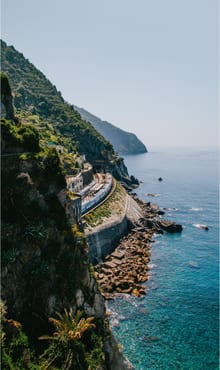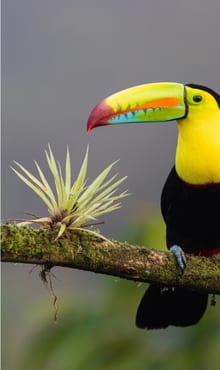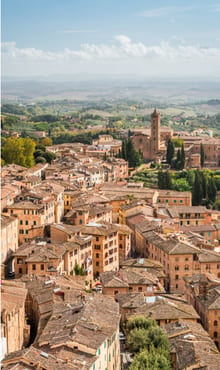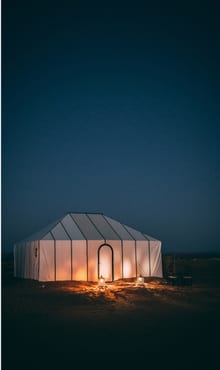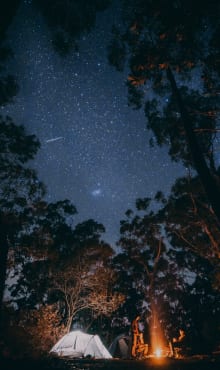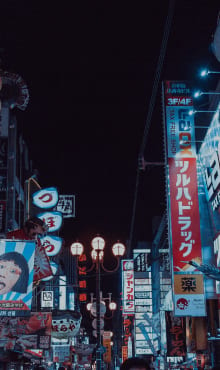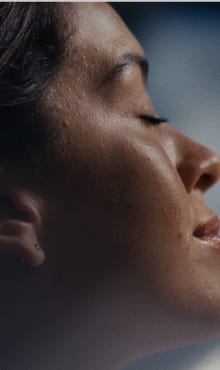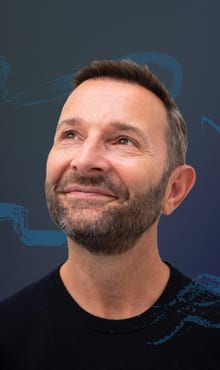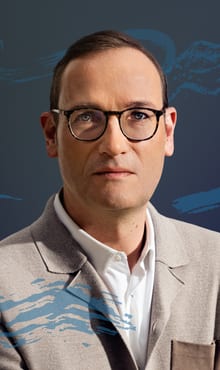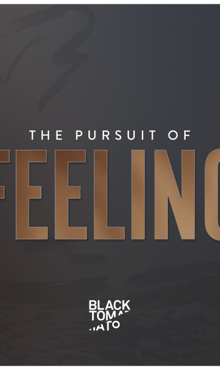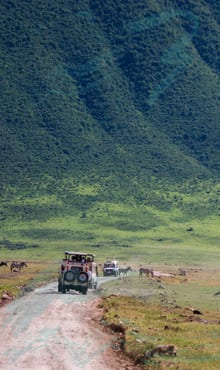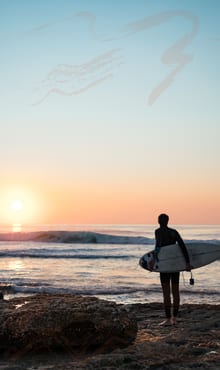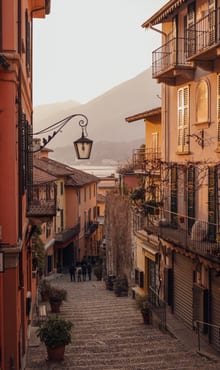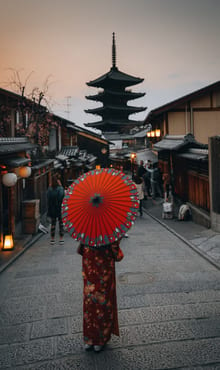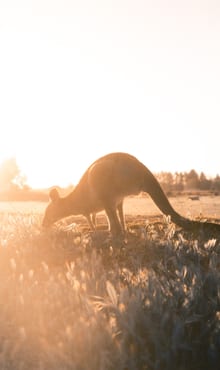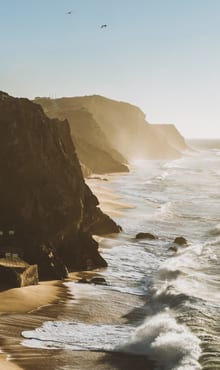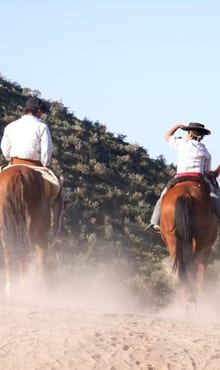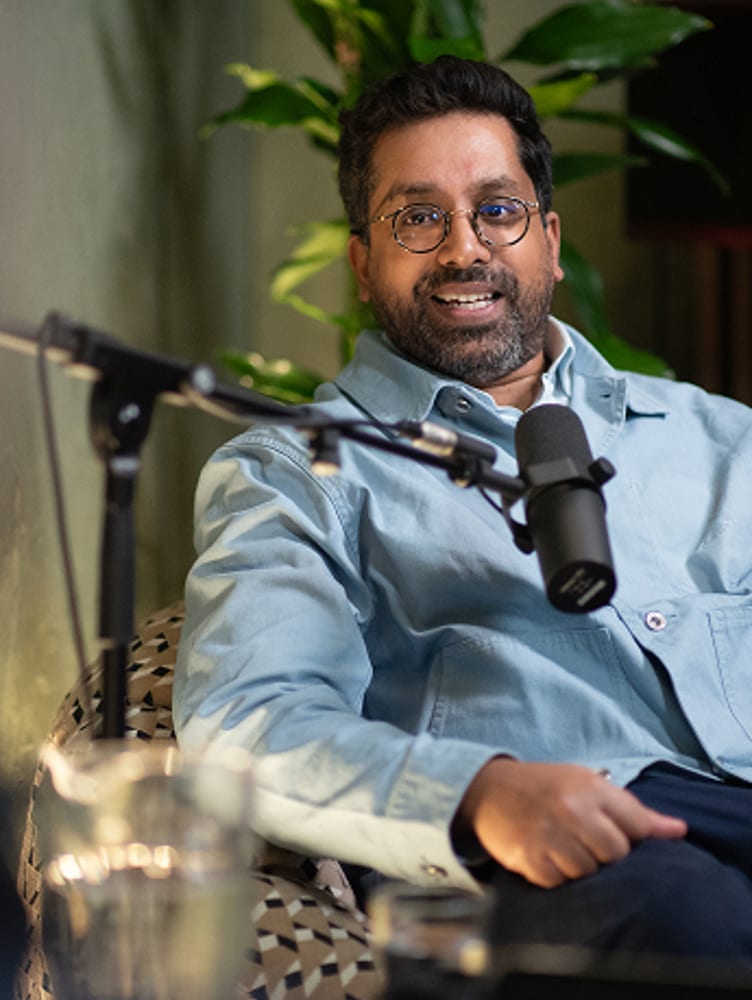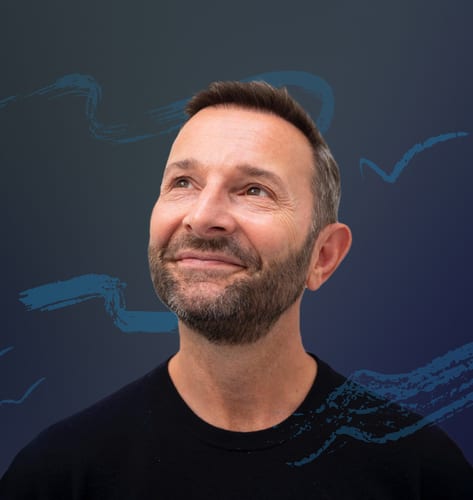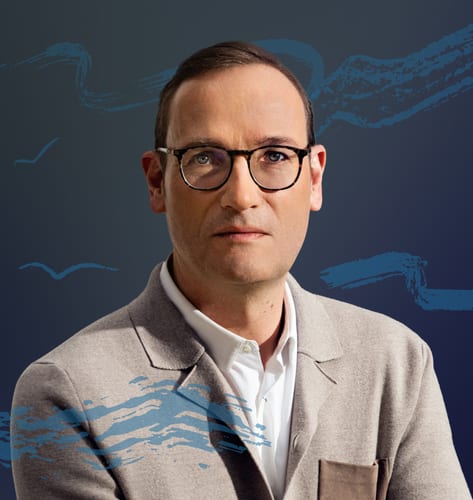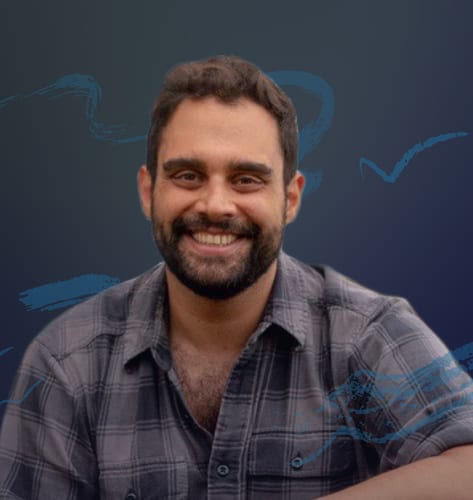Transcript
Owen Vince: 0:00
You’re listening to the Pursuit of Feeling, a podcast by Black Tomato. In this series, we want to explore not only the world of travel, but the world of emotion and what it ultimately means to feel our way through the world. Or to put it another way, what does travel do to our brains and our hearts, and even our souls, when we set off for new places and faraway shores?
Tom Marchant: 0:28
On this episode, we’re joined by one of hospitality’s most pioneering minds, ryan Chetterwardner, also known as Mr Lion, named the world’s best bartender and the visionary behind bars that have been celebrated as the best in the world. Ryan has redefined how we experience drinks. With a background in art, food and biology, his deep knowledge of plants and creativity pushes the boundaries of what a cocktail can be. Spas aren’t just places to drink. They’re designed to evoke emotion, memory and connection. Just like travel, they create moments that move us, feelings that stay with us. Today, we explore how Ryan crafts these feelings with flavor, space and the inspiration he finds in travel.
Tom Marchant: 1:08
I’m delighted to have with me as a guest on our Pursuit of Feeling podcast today good friend Ryan Chetterwardner, also known as Mr Lion, who is globally renowned as being one of the most innovative people in the world of hospitality, particularly around cocktails and the bars. He has won numerous accolades and continues to, from being named the world’s best bartender to owning bars that have been named the best bar in the world, and he is a constant source of innovation and inspiration for so many people in all industries, and it’s an absolute pleasure for us to have Ryan on the podcast today. So, ryan, welcome.
Mr Lyan: 1:40
Thank you, that’s a very kind intro and lovely to be able to catch up, as always.
Tom Marchant: 1:44
Yeah, always. So thank you for coming on. So Pursuit of Things podcast for us is about exploring the relationship between travel and the emotions it can create. When you travel, we’ve always seen it’s been quite an interesting connection and for this we want to speak to people who we also think you know we know you travel, who understand the role that kind of emotion feeling can play in their life. And on that note, perhaps you just kick off telling us a little bit about yourself and your relationship with travel.
Mr Lyan: 2:09
I mean, I I’m very fortunate that I do get to travel a lot, no-transcript. So you’re going to go and see friends. You want to be able to check out the way that people are working and doing things from a different point of view. But it’s also that window into a different approach to things. How do we gather in different parts of the world? How do we use food to bring people together? And so it’s been this wonderful opportunity to be able to, you know, see parts that I might not have thought to kind of like hit as a vacation destination, kind of go out and discover some of these wonderful parts of the globe that are just fascinating and have a very different approach to what I’d grown up with.
Tom Marchant: 3:01
To that point growing up, was travel always an important thing to you. What role did it play in your life? And was there? Did you have a feeling that kind of it would impact or influence your work or what you do as you got?
Mr Lyan: 3:12
older. We were always taught to be very curious. We grew up in the UK, but parents from Sri Lanka, and it was very kind of instilled in us that the world was a wide place and we should be kind of like receptive to the idea of thinking on it in a in a kind of much, kind of broader manner. But you know, when we were very little we we didn’t travel heaps outside of the UK. We would do kind of family trips with other friends and it would be different parts of the UK, maybe over to France. But it was probably a little later, when we we’d grown a little and it would probably be less kind of troublesome for our parents to take us on a plane. We started to to kind of venture out into other places, and some of it again probably for ease and having three young kids, you know, going a bit more around Europe. But we would go to Tunisia, we went and visited family in Sri Lanka and we started to kind of branch out into other places.
Mr Lyan: 3:57
And I think again, that idea of this curiosity and to kind of be receptive to a different way of thinking was maybe not so overtly.
Mr Lyan: 4:06
It wasn’t like we were, you know, told pay attention to this or kind of see these things. But I think our parents pointed out stuff and we were, you know, encouraged to try something, even if it was a food or a new activity or going to see a different site, and I think it really did start to kind of like seed those ideas in in all of as youngsters and both my siblings have traveled extensively. Actually, considering the fact that they don’t do it for work, they’ve probably done it just as much as I have I think we really all got very excited by the idea of those different feelings you have when you do go to a new place, and I think you know exactly the sentiment you pointed out. It’s not that you’re just seeing a new landscape or a new vista to be able to look at. There’s a a very different feeling that comes with being in that different place and that different kind of way of thinking about stuff yeah, it’s true, isn’t it?
Tom Marchant: 4:53
I think when we started the company we, we looked around the industry and would see that a lot of other companies, very good companies, but they would list what they offered according to just destination and almost like activities. Um, so it might be the brochure or a website and what we felt was missing was almost. But they would list what they offered according to just destination and almost like activities. So it might be a brochure or a website and what we felt was missing was almost like from a personal experience. But the things that stick in our heads is like how you remember feeling, and it was just that language wasn’t really there. And the more we looked at that, the more we thought there might be an opportunity to start a business. But I think we also then started just connecting it to other industries.
Tom Marchant: 5:25
You know so, when you go and have meals, you’re going drinking places. You yes, you might talk about the specific product, but it’s always you’d be thinking about what did that kind of create within me? Yeah, um, I guess on that you’ve created and pioneered so much, you know, in in the drink space specifically. Was there something in your childhood or as you grew up that kind of led you there. I’m just wondering how you got into this world where you’ve become such a such a leader in terms of shaping people’s experiences.
Mr Lyan: 5:51
I mean, you really hit the nail on the head in terms of you know that idea. It’s about how you feel in in a situation, and I think that’s always been our approach. It’s going. It doesn’t matter what we put on a plate or we put in a glass, that’s not the product, it’s how you feel as a result of it. And I think you know that was very much.
Mr Lyan: 6:09
You know my parents didn’t really drink, but they would use food and drink as a way to bring people together and I think that was the thing that always fascinated me and even with my studies, you know, going from, you know chefing, fine art, biology, philosophy, all of those things. They seem quite odd, jump arounds, but to me they’re all about people and I think I was always very intrigued by that, having seen, you know, my parents socialize in that way and kind of bring people together. And you see all those wonderful moments and those things that etch in your memory of you know we were together at that point and you don’t remember what you ate but you remember how you felt and really thinking about how special that was as a you know, if you can get to encourage that, if you can bring that to life in a regular way for people that’s it’s quite a magical thing. I didn’t really know that hospitality was going to be that as a as a mechanism. I was just working in it while I was doing these various different studies.
Mr Lyan: 7:00
But as soon as you do experience that I think this is the reason why know that bug bites people and they stay in the industry like that, you get exposed to exactly that feedback. Somebody says this is the best night of my life, or you know you see them light up about something, and or they’ll recount a memory of being somewhere where it’s been this incredible meal or this moment in this, you know this bar or whatever it might be. It’s exactly the same as those moments on travel, right like it’s uh, you know you go somewhere and it changes, like it fundamentally changes you in a way, and that’s a very wonderful thing to be able to kind of work around and, yeah, I found it very exciting to be part of it’s funny, we, some years ago, and we still told you the idea, there was this travel offering based around this expression of do you remember the night when?
Tom Marchant: 7:42
yeah and it’s something that we all, or or the day when and it’s something that we all have these memories of there was a night, and it might be, you know, you might be at a tiny Greek taverna on a beach and there’s a sunset and everything just kind of came together. And it’s this combination of maybe it was amazing food, maybe the music, maybe it was the breeze, maybe it was the temperature of the drink, but it all just kind of came together to create this incredible memory and experience. And what was interesting, and as we dug into that, was almost looking at the psychology of the, of the, the aspects that contributed to how you felt, and and again in travel. It hasn’t always been like that, it’s been like quite manufactured or quite, quite binary, but when you start looking at those bits around the edges, um, those are the things that you sort of tend to remember, or when you make the connection to those again, that’s actually what’s creating these special moments, right yeah, and I think all of those things are tools that add together, right?
Mr Lyan: 8:33
you can’t codify those things all the time, right? Like it’s um, the magic comes when they’re just in the perfect unison, and it’s it’s very much the same in the hospitality world and when you, you know, we were talking a bit about innovation and I think I’ve always been excited by trying to push things forward, because I think, you know, the world evolves around us. We need to look at new ways of of exploring those things and I think a key part of deliciousness or a key part of like a core memory is it takes you a little out your comfort zone. It expressed something, expresses something new, but I think it is that. It’s the unexpected aspect of it. You know, you can’t just write down the formula for it. All those things have come together and it’s that secret space that’s managed to align.
Tom Marchant: 9:15
It’s like water. I love that bit about out of your comfort zone because even specifically before you’ve had it, there’s an emotion being created which is almost like you’re daring yourself, you’re daring yourself, you’re challenging yourself, which in and of itself gives you a buzz. That I’m doing. I remember, I think, when you opened White Lion off Robson Square and came along and I think in those days you were doing these salt and vinegar or fish and chip shots yeah, Do you remember these?
Mr Lyan: 9:38
Yeah, there was a. Yes, I can’t remember what it was. It was like a sour, like herbal salty shot.
Tom Marchant: 9:45
Yeah, it was amazing. But I remember coming into the bar and you’re saying try this, and it sounded so unusual but interesting and I think it just fueled your curiosity. If you’re a curious person, you just wanted to know that and I think those are things that just makes life all the richer. If you’re trying things I mean, on that note, in your quest for innovation, do you ever pick places to travel to to seek inspiration? Or do you go there with a specific plan or do you say, look, I just this area seems interesting, I’m gonna go and immerse myself in there and see how it makes me feel, or see what I can take back. I mean, does that play a role in your kind of prep and planning?
Mr Lyan: 10:20
100 and it might be that you’ll you’ll hear about a certain scene and that might have buzzed out of somewhere and you know it’s always fascinating what’s kind of spurred that and sometimes it’s. You know, I lived in, worked in Edinburgh for a long time and there was just this wonderful moment where, you know, there was some great people that managed to get the right formula of things together where they were able to get spaces, they had the right kind of support of things, but it became exponentially weighted as a scene in in amongst the rest of the uk and you get that in different parts of the world and you follow that because it’s it’s super fascinating, it’s kind of happening in. You know, athens is a good example of this at the moment. Actually, from a hospitality point of view, there’s just been this great explosion of things happening in the city and you want to go check that out, you want to understand what is happening and it’s not just a singular place, it’s not one bar doing it, it’s a collective that seems to be kind of hitting its stride. But it also might come from, you know, a very different landscape.
Mr Lyan: 11:14
So I remember the first time I went to kind of south africa and you know it’s its own plant kingdom like. That’s fascinating to me because there are, you know, species and and not just as a biologist but as a, you know, from a flavor point of view you’re getting to discover things that you can’t try anywhere else. And I had the same thing when I was exploring, you know, mexico or Australia, and you’re going this is stuff that I have no frame of reference to and that’s fascinating. It’s taking me out of my comfort zone, it’s making me kind of break away from some of the foundations or kind of like usual lanes that I would work in, and that’s really kind of just always going to be such a wonderful inspiration.
Mr Lyan: 11:52
Other times it might be. You know, japan remains one of my favorite places to visit and, you know you get to delve into this kind of wonderful kind of link between history and modernity in such a seamless way and I find that so inspiring to kind of see. You know they haven’t let go of some of the things that have been part of like an ancient tradition, but they’ve also not kind of fetishized it. Where they’re going, we’re not going to let the world change around us, and I think any of those things are great things to learn from, but I can’t think of anywhere that I’ve been in the world where I haven’t taken something away from it.
Tom Marchant: 12:24
The biology side of you, which is fascinating, and you’re known for your relationships with plants and seeds. Just take South Africa as an example. When you’re going out there and you know there are plants you can’t find anywhere else, what’s the process that you go out, in terms of going out and saying, right, I want to discover, I want to immerse myself. How do you go about setting that up.
Mr Lyan: 12:42
I like reading into those things. So I will definitely do a bit of pre-research and obviously you’ve got to be very respectful of the landscapes, both from a kind of societal point of view and ecological point of view. But I’ll just try and speak to people. Really, that’s my key thing and I think I’m always intrigued by different types of expertise. It’s not that I need to just speak to a winemaker or a bartender or a chef.
Mr Lyan: 13:03
Sometimes you kind of speak to people and it’s kind of born from a. You know, this is the geography of the landscape, this is where the kind of like cultures and the societies grew out of it and they, they approach these plants or these herbs in this particular way, or they preserve this or, you know, this changed the landscape in a particular manner. So it kind of it strays into anthropology quite quickly. But then you’ll also have these wonderful insights where it will be an important and it could be a medicinal thing, it could be a historic thing, and you can quickly start kind of seeing how it strays into the kind of territory of agronomists and, and you know, people starting to look at it as a commodity. Um, and you know, you go around, you know seeing some of the stuff that has become famous exports from places the wine in in south africa is unbelievable, it’s my favorite wines in the world but also some of these kind of wilder finbos plants like the you know rooibos, which everybody knows but you.
Mr Lyan: 14:07
I kind of had this vague understanding of what it was. But then, speaking with with people that you know, uh, it’s a, it’s a wild plant, so how do they tend to it? What does it mean for you know, the rest of the landscape? How do they carefully manage harvesting something like that? And then, as popularity booms, you know how do they kind of make sure that they? You know this is important part of the the history of the area, but also it’s a link to livelihoods. So you know, how do you maintain that kind of balance and I think that side of it is also really, really interesting it’s amazing, like the integrity that causes see what you do is just astounding.
Tom Marchant: 14:43
It’s amazing. Have you ever had any experiences where you’ve been exploring and you found something that’s blown your mind, but a very developed you know and said is an audience, say, in that territory, ready for this or how would it adapt? I know part of who you are is that you lead and you challenge people’s thoughts and so people will follow. But do you ever find times where you get someone and go people’s thoughts and so people follow, but do you ever find times where you get someone go? I love this was interesting, but I’m not sure if, say, a wider audience is ready for this yet or you have to find somewhere in between to introduce it yeah, a hundred percent, and I think sometimes it’s funny.
Mr Lyan: 15:15
You talked about white lion I. You know when we’re. When we first wanted to open that bar, I think you know it took two years to find a. You know we’ve been working on things for a while. Had we opened when the first idea came out, it would have bombed.
Mr Lyan: 15:29
Time and place is really important and sometimes it’s very hard to kind of transport something into a different space. And you know audiences have different approaches to things. They have a different tolerance of certain things and sometimes it does. It just needs to be seeded in a particular way, particularly if it’s, you know, a little odd as an ingredient. And you know we’re very spoiled in london, for example, because it’s such a diverse scene here that people might have come across it and you know, fine, we might have put it in a very different context and it we’re lucky that we have a trust in us that people are going.
Mr Lyan: 16:01
Okay, you’re not doing this for gimmick, it’s not pretentious, you’re not just doing it for the shock factor. We kind of want to know why it’s in there. Um, trying to think of an example, but we’ve used some pretty weird stuff at the moment. Okay, for one. There’s a, there’s a fermentation that we use a sheep pancreas in at the moment in seed library and that’s not something that sounds inherently delicious.
Mr Lyan: 16:22
Um, and you know, we took inspiration from different cultures where they are using other parts of the animal to kind of ferment things often things like preserving or things like cheeses and stuff like that and so we took something that is, you know, very normalized in certain settings, transported it into something very different and you know we have to then connect people to that to allow them to to to again feel like they can trust us and that it’s going to lead to something delicious. But we, we know we need to be able to be in a, in a situation where that’s going to work. Yeah, I suppose in all of the bars we’ve got a little bit of that trust built in. But if we were doing an event or we’re doing a collaboration somewhere in a different part of the world, it’s not going to make sense just to plug that in yeah, it’s funny.
Tom Marchant: 17:08
I think like one of the um emotional feelings we see people pursuing is feeling that you’re learning or being educated. I think so much of what you do is, as well as giving a great you know, tasting or feeling experience, you’re educating people. People are curious, want to know more and I think can get really bought into you know, discovering and actually kind of becoming more informed. I mean, is that is that kind of it’s not for shock factor to say, but just understanding that and that education, is that something that you often bring into when you’re developing stuff is like, because you do, you see yourself as a an educator of people coming in yeah, and we, we definitely want to, you know, without making it something that they have to like abide to it’s like as a way of prescribing too much, but it’s certainly something where you want to bring them along the journey.
Mr Lyan: 17:51
And I think you’re right. People are curious, but also people. It’s hard to understand your sense of taste, even if you study it. So you might know your favorite music or your favorite paintings to look at and we’re taught to be able to analyze those things we’re not taught to think on our sense of taste in the same way and so being able to to kind of help people kind of connect to things and understand a bit more about themselves but kind of like start to explore this kind of very wide world in a way that they feel a little bit more informed about it or they’ve got a little bit of a connection like how do you even connect the language to it, let alone understand where those flavors start to come from and what else they relate to. So there is an element of the education in there and kind of bringing people into that world so they can feel a little bit more kind of empowered to think about their food in a different way you touched upon it earlier.
Tom Marchant: 18:42
Just keen to hear your thoughts more, because I know how much it means to you but Japan as a destination. So when did your sort of love affair with Japan first start and how has that continued to this day, and what does it mean to you as a place that stimulates and creates emotions for you, and how does that come back into your work, perhaps?
Mr Lyan: 18:58
Yeah, I mean I think I first traveled to Japan about 16 years. I honestly it blew my mind. It was. It was such a new kind of approach to different ways of and we saw everything from you know countryside, big cities, um, kind of delved into very kind of like humble kind of street side style things, through to nothing super fancy, because, again, we’re still a student at that stage student budgets yes, but it I think it’s a really important thing to know, because everybody thinks Japan’s going to be super expensive.
Mr Lyan: 19:38
And actually being able to see it from that kind of very different side, to then traveling for it from much more of a work perspective, visiting some of the whiskey distilleries but then also meeting artisans who were kind of doing things in the country, it was.
Mr Lyan: 19:53
You know, there’s such a vast array of things to explore in a very accessible way.
Mr Lyan: 19:58
I think that was one of the things that really amazed me was was how willing people were to kind of welcome you into if you were curious to discover something. Of course you have to understand and be respectful of the customs that are particular of there, but honestly it’s like if you can be polite and respectful, you everybody will welcome you in and you know seeing everything from traditional paper making to whiskey to going to see, you know, the mastery of a sushi chef, and you know that the fact that this was things I had a vague kind of like exposure to, to be able to, to go visit and kind of really delve in and and realize that you know you’re you’re in the presence of things that have been built for generations and it just. There’s a wonderful thing, I think, where that could easily feel like oh my god, I’m never going to be able to master anything, but actually the flip side is going wow, there’s so much to explore yeah and you know you can.
Mr Lyan: 20:53
You can spend time with something and you know this is a person who is quite widely regarded as the best in the world of what they do and they still see themselves as a student. It’s a really lovely thing to be able to go see and I think one of the wonderful things I’ve loved about japan is is is that you can like access that feeling what?
Tom Marchant: 21:10
what is it about japan that talked earlier about? It sort of it recognizes and celebrates its heritage, but it also fiercely embraces the new. What is it that kind of creates that within Japan? Because it just in any, it seems, a lot of industries eyes turn to Japan, to kind of where interesting things are happening and where people are looking to be inspired or challenged or even overwhelmed by the wonder of things.
Mr Lyan: 21:37
Yeah, you had that it’s a really interesting one, and I was speaking with a gentleman named ueno-san, who’s a an old mentor of mine. He he’s a master bartender who has a bar called bar high five in tokyo. He’s also hilarious, he’s he’s a absolutely like you know, one of the world’s greatest bartenders and also just this like brilliantly funny man. But he was talking about the, the ancient japanese name for the country being wa, which means harmony.
Mr Lyan: 22:04
So before it was even termed japan, this idea, this philosophy of, you know, balance being part of of the, the approach of the culture, and so how they kind of think deeply into everything kind of stems from.
Mr Lyan: 22:21
And you know, that’s that’s me kind of trying to to kind of like take a view as an outsider, to kind of see where these things come from. But you can then see where things like kaizen, the continual improvement idea, comes from, because that is part of this idea of harmony. You know, everything else is shifted. We want to be able to kind of work out how this balances as a result. We need to keep refining it. I think it’s really interesting seeing some of those things about where, particularly where it’s been a product from outside of japan that’s come in and they’ve applied, this kind of idea of kaizen and this balance and this different improvement to it, has led to some really wonderful things, and so I think I think it’s ingrained in the culture to look at things in this quite balanced way and do you bring that approach into your bars and your business in terms of refining?
Tom Marchant: 23:07
or I mean, we talked a bit earlier about sort of menu shifting and stuff yeah, I mean, I know you’re not someone who sort of sits still, but also sometimes you know you get a formula that works. You know you also want to stick to that. How do you get that balance?
Mr Lyan: 23:20
I actually think we don’t stick to a formula.
Tom Marchant: 23:22
I think that’s one of the key ones.
Mr Lyan: 23:23
I think, you know, one of the founding principles was anybody in the team can challenge anything. So if you’re brand new to the company, if you to the company, if you think that we’re not doing something in the right way, we’re not precious about those things, and I think actually, you know, I hadn’t really thought about it as a kind of mirror idea of kind of heritage and modernity like we talked about with japan, but even the stuff that was at the beginning of the company, there’s nothing that’s a rule like. I think we have things that we um are guided by, there’s like overarching aspects, aspects of the philosophy, but there’s very little that we, really very little that we’ll set in stone. You know, ultimately we want to be able to improve kind of systems, because that, you know, allows people to focus on the bits that we think matter. And to me, the experience of being in our bars, again, it’s not about the drinks or anything like that, it’s about, you know, the team treating you as an individual to help you have the most amazing time that day.
Tom Marchant: 24:15
Actually, well, that’s please, you raise that, because that’s the thing I want to talk about. Like you know, the emotion of the experience you have in your bars. You’ve just answered in a way that you’re thinking about that’s beyond just the incredible drinks that have been served. How do you approach that? I’m not saying you have not a formula, but clearly it’s a point of important consideration. So do you start by saying that when someone steps through the doors of one of our places, we want them to feel a particular way, or is it more letting it kind of unfold organically? How do you come at creating that exceptional?
Mr Lyan: 24:44
feeling. It is about letting it unfold organically, because one of the things I love when I move from from kitchens to bars, I love the fact that bars were unstructured. You know, you sit at a table, you kind of know what’s happening, you buy into whatever that restaurant and that chef’s kind of product is, whereas you might come into a bar for a date, you might come in because you’ve had a long day, you might be having a meeting, you might be throwing a party, whatever it might be. The range of emotions is very, very wide, and so the key thing that we do with the teams is is empower them to be human, be themselves and understand what it is that that particular person needs at that moment. And it might be that they need to feel like there’s a big warm hug around them and they might be like need to be left alone and just kind of give, like everything to be seamless, so they can, you know, get lost in their conversation. Or they might be like need to be left alone and just kind of give, like everything to be seamless so they can, you know, get lost in their conversation. Or it might be that they need, you know, it drawn out of them, because, again, bars can feel intimidating.
Mr Lyan: 25:43
People don’t always know about what their tastes are going to be. You know, the drink can be that thing, that kind of like sparks, that little moment that takes your celebration from being okay. This is a nice way for us to be together and kind of share this moment to. That’s the night we remember because it’s associated with that celebration. But all of these things just came together to allow that feeling to bubble up right to the surface. So the key is in the flexibility of it and not prescribing too much. You’ve got to be able to set the conditions up right, but it’s about going well. What exactly? You’ve got to be able to set the conditions up right, but it’s about going well. What exactly what you said before? How do you want to feel?
Mr Lyan: 26:17
in that moment and the more that we can understand that without you know, obviously quizzing people too much the more we can read them from you know their body language, their conversation, all of those things then the more that we can connect that feeling for them.
Tom Marchant: 26:32
There are so many parallels with travel as well. I’m at that. We’re about kind of creating these moments or these experiences, but it’s about putting into people, into places and and like framing them so that they can discover, but also with knowing routes that we take, but without being too, you know, prescriptive. A lot of people know how they want to feel, but obviously one particular feeling can be very broad, you know, and so you know. It’s like this is the moment you now need to feel like this.
Mr Lyan: 26:55
Yes.
Tom Marchant: 26:56
But you say getting the conditions right and I think such a crucial thing you said there is. The people involved like to understand that so much of hospitality is in the psychology of understanding people and, like you said, there’s varying examples of you know, understanding why people might be in for a particular reason and adapting to. That is everything. It’s clear that so much of of your travel fuels emotions, inspires your work. Are you someone who can, when you’re not traveling for work, to not think about work? I mean, I, I but, but it’s, but it’s interesting, so why not? But like, do you, do you travel differently to when you’re traveling for work? Do you have you know?
Mr Lyan: 27:36
what inspires you, or is it more like no, it’s everything’s just interesting and I’m kind of sucking the marrow out of it all the time yeah, it’s very much that the the beauty is, if I wasn’t working, this is what I’d be doing, and so, because we look to a wide range of interest, of course it’s going to see, you know, bars and bars and restaurants, but it’s also, you know, as I said, it’s understanding the landscape, it’s understanding different perspectives, it’s going to galleries, it’s going to other cultural institutions, like. All of those things are exactly what I do from a work perspective is what I would love to do from a kind of personal perspective as well. So the fortunate thing is it doesn’t feel like I’m working all the time, it just more. It feels like I get to do all the things I love on a daily basis you’re being inspired the whole time.
Tom Marchant: 28:20
Yeah, have you ever been somewhere where you’ve built up in your head? Or perhaps you’ve heard too much about um and you’re expecting a, you know, a life-changing experience? Or feeling, and you’ve got there and felt underwhelmed.
Mr Lyan: 28:32
Or perhaps it hasn’t met the hype, or I don’t think there’s anywhere that’s underwhelmed, because I think, you know, expectations are really tough thing and sometimes you can build things up overly in your head, but I think any time it’s hinted towards it not being quite right. I’ve, I’ve pivoted towards I’m what I’m looking for, and so sometimes I might have thought I’m going to go experience one thing and then I’ve ended up kind of um, you know, being amazed by something completely different. Honestly, I went to to Moscow in, you know, 2008, so a long time ago, very different world.
Mr Lyan: 29:10
Obviously and, um, you know I was I was expecting this kind of, you know, the, the busyness of such a big city and of course there’s there’s elements of that. But I think the thing that really astounded me when I was going through the, the subway, and you know I was actually on the way to the circus, which was really mad, which is, yeah, you know, obviously, seeing, seeing the, the circus in in russia, was incredible, but it was the, you know it was such a reflection of this is what the culture had been kind of born out of and you know the approach and the, the mastery of arts in such a beautiful way, but in such a public way, was astounding to me.
Mr Lyan: 29:51
And it wasn’t that nobody had warned me about that and it hadn’t been brought up and it actually wasn’t really on the agenda of things, and I was traveling with somebody who didn’t speak english. I was doing this shift in this bar and they said, oh, we’ve got you a night off to go to the circus, and so I was just following this person.
Mr Lyan: 30:08
You know we were communicating through gestures and you know pointing them going this way, and then I just honestly, I got into the subway and I was just absolutely awestruck by it, and I think you’ve got to be able to leave yourself open to what you don’t know and and I think that’s a really lovely thing of you might have an expectation about a place and, of course, like that, that’s something you want to be able to seek out. It might be a particular site, but it’s just being able to be aware that there’s all of this other stuff to see as well, and you can never really control what’s going to blow your mind, and and that’s the one of the wonderful things of life, yeah, I couldn’t agree more.
Tom Marchant: 30:44
I think it’s it’s it’s the attitude you take, isn’t it? It’s like if you, I’m, I’m the same. It’s like I don’t believe there’s anywhere where, if you look hard enough or if you’re open your mind enough that you can’t find something that’s going to kind of pique your interest, or at least you’ll be able to reflect on good and bad. I think one of the dangers of travel is people saying, well, I have to go here and I’ve thought it’s going to be this, it’s not this. Therefore that place is not right. And I think also that comes down to perhaps being blinkered with your travel. You’d meet some people who go to a particular city or come back and say it was terrible. It’s like well, where did you go? I went to this obvious tourist spot. It’s like well, and it was closed, so I didn’t do anything else yeah, and it’s like you lose.
Tom Marchant: 31:20
That it’s funny. I uh moscow, I totally agree. I. I lived there for a period in my early 20s and I I hadn’t. I think I’ve been. I’ve been reading the lonely planet about it and there was something about the subways but I hadn’t really paid any attention to it.
Tom Marchant: 31:32
And I remember the first time getting on the subway and stepping off and just being just my jaw being on the floor, these cathedrals internally, and it was such a like you say, it was both the beauty of it but also the reflection on its culture and the significance of it and almost like the statement of intent from that place.
Mr Lyan: 31:52
You get so much from it. I learn a lot from it.
Tom Marchant: 31:54
One thing that it seems apparently to us is when you travel, your emotions feel so much more heightened than the day-to-day. I think there’s a number of reasons why, but why do you think that is? Why is it when we travel, everything feels a bit more in clearer color than when we’re here?
Mr Lyan: 32:11
It’s such a lovely way of putting it. I haven’t really sounds extreme, but fight or flight, because you’re in an unknown circumstance and you’re your body will be paying attention to everything, because it can’t just fall into a regular pattern and because we thankfully live in a world where you know most of the time you’re traveling and you’re not having to be like really like, do I need to fight my way out of this? Um, so you’re, you’re able to just let those heightened senses flood you with information in a really nice way and you’re right, colors look differently or the way that you open up to stuff feels very different and, yeah, I think that’s a really key thing to embrace you actually do end up looking at stuff in a kind of more wide-eyed manner.
Tom Marchant: 32:57
I love that thing you said about opening up, isn’t it? It’s because if you’re traveling, you’re well. I think certainly ourselves are lots of people we know. Are you sort of you’re welcoming new things in? You know?
Tom Marchant: 33:09
yes, there’ll be some things that are challenging, possibly even overwhelming, but you just seem to kind of loosen things a bit and it’s like I’m here to kind of absorb and learn and and suddenly the thing that can seem really quite insignificant can just take on this huge amount of significance or interest. And whether it’s down to local customs being different or just things looking different that are in terms of you know, architecture, or or just banal stuff that you wouldn’t pay any attention to at home, I think it’s just when you put yourself into the different places and your mind’s in that space, your natural levels of curiosity just go up absolutely yeah, and I think that’s also probably why it just seems to stimulate emotion so much more it’s also why you can you get a bit of that provence effect.
Mr Lyan: 33:46
Sometimes, right like you, you had that beer that you you had in a particular place, or that dish, and you try and bring it back and you’re like, why doesn’t this taste the same? And you know that that could be something to be like. Oh nuts, it doesn’t taste the same, but it’s like it’s actually more the magic of when you’re there. That is the thing to chase like.
Mr Lyan: 34:03
Things will be different when you’re on the road and you’re trying it in situ and it’s surrounded by all those things and I think that’s a. It’s a wonderful thing, rather than like something to frame as a. This tripped up because it didn’t work when I had it back in in my home setting.
Tom Marchant: 34:16
That’s it, I think it’s just like realizing that we we just probably take on slightly different personas, but just um our outlook or approaching, it’s just slightly different between places but that’s kind of one of the one of the joys of it.
Tom Marchant: 34:28
Yeah, I’ve talked with someone recently about bringing stuff back, yeah, and I remember there was I’ve been away, it was. It was. It was wine from somewhere. I brought it back and I was. I remember I was living in hackney at the time and it was a really cold, wet night in the middle. I don’t know why I was even drinking this particular bottle. It was because I drank in the summer.
Tom Marchant: 34:44
I sort of opened it and I remember saying the game was just not the same. Actually there’s a reason why it’s not the same. Yeah, and there is that. You know it’s. It’s that, it’s that wider stuff, isn’t it like sort of those? Um, it’s not even a self-perceive, but there’s just so many different sensory um hits coming in that kind of contributes that feeling.
Tom Marchant: 35:00
Yeah, how’s that like in your world in terms of like, looking at, you know your, the people coming into your bars and and the enjoyment they’re having, have consumer needs or demands or wants from the experience having? Has that shifted over the years in terms of what you’re seeing? You know people coming through and interacting with your spaces?
Mr Lyan: 35:19
yeah, I think it has shifted and I think a big play has been because people have been traveling more and they’ve been traveling to different places. So they’ve come back. You know, previously you might’ve heard about a particular drink and, for example, when Mad Men came on TV, like everybody started ordering old fashions or Manhattans and great, it was a brilliant boom for the classic whiskey cocktails. But you also had people traveling to brazil and then coming back and be like you got cachaca and then, or they might have tried a different cocktail in a particular place, or you know even certain herbs getting demystified for people. For example, you know, star anise. Anise is not a very big flavor in kind of british cuisine, but then all of a sudden, if somebody’s been, you know, spending time around the mediterranean and they’ve been having, you know, rakhi or something like that, and then all of a sudden like got anything that’s got like a little bit of an anise note to it and you know it’s really nice to see how they, you know, want to be able to, to kind of carry on some of that feeling, or it’s just sparked a curiosity. You know, know it’s changed the way that they, you know, would have come in. And you know we always try and have a bit of a dialogue. Of course, if somebody rocks up I want a gin and tonic, absolutely Well, you know a classic cocktail will guide them to that.
Mr Lyan: 36:31
But it’s also where they’ve tried something and they want to be able to understand it a bit more. And you know we can frame it in a slightly different manner, even if it’s you know, I say this a lot with if people just discovered a brand new spirit, or you know you want to be able to know more about a category, or even if you’ve got your favorite spirit that you drink at home. You know this is your whiskey, you drink every week. You know your friendly neighborhood bartender is the person that can help go.
Mr Lyan: 36:57
Well, if you’ve tried it in this, try it this. You know this is going to show off a different side of it. Or if you’ve liked that whiskey, you might like this, or this also tastes like this. And you know all of those little bridges, those little notes, not just from an education point of view, but from a this, this helps their their own little mind map. I think that’s a really nice way, um, and it’s also one of the things I’ve always loved when I was, you know, much more in the bars as a bartender, kind of guiding and kind of giving those little anecdotes or insights for people to follow.
Tom Marchant: 37:29
And that is a lovely feeling for a person to be in a bar, getting informed and inspired by an expert, and is that something you encourage your bartenders to, or is it kind of go with it if you think it’s right? But is it when you’re hiring people right? But is it, you know, when you’re hiring people into your bars?
Mr Lyan: 37:44
Yeah, we absolutely do. We obviously don’t want to bore the guests Like it’s not about making it about us, but they’re absolutely empowered to. You know, if somebody doesn’t like something, we’ll just change it. Like it’s much more important to me that they have a good time than it is about okay, we’ve lost that. You know cost of that drink. And similarly, if people want to have a little taste of something like it’s it’s, one of my favorite things is is you’ll have somebody who’ll be like oh, it was. You know, I discovered my new favorite whiskey at, you know, lioness, because you know I usually drink this and they were giving me a little taste of something and I found something I had no idea I either existed or that I would like. And again, again, it’s all about trying to find those little connections for people that feel yeah like we’ve helped them discover something new.
Tom Marchant: 38:29
In your local bar. Yeah, you are on a journey of discovery.
Mr Lyan: 38:32
Yeah.
Tom Marchant: 38:32
And so it’s just that there’s just some nice connection to travel. We talked about Japan. Are there other places that you know and you’re well-traveled, you get looked at, but are there other destinations that kind of stick in your mind as places that are a regular source of inspirational, embodied curiosity that you’re always sort of looking to? I mean, you talked about athens earlier. Interesting things happening there, what are the places that you kind of think about?
Mr Lyan: 38:55
uh, one of the key ones for me has been australia and I think that’s partly because there is some incredible produce in that country and you know you’ve got the oldest civilization in the world there and you know it’s not that that’s um being necessarily like brought out, like some of their knowledge and their, their insight into the, into the land, is not as ingrained as it should be in in in the, in the everyday situation. But you can still kind of access some of these kind of incredible ingredients and they’re so forthcoming with, with kind of knowledge. The first nation people have been, you know, shared with friends and they’ll talk about it and we’ve been able to go out and try some different things and amazing like flavors that I I’m totally baffled by ways of processing things or sourcing them or you know how they’ve linked to the land is is honestly it’s just incredible to be able to to understand. But I think it’s also the fact that the probably the most kind of natural bartenders in the world are in, I think, the celtic nations, again, great storytellers. You go across the island, you’re in scotland, you’ve got brilliant humor coming through. But Australians are just really good natural storytellers. They’re very disarming, they’re very welcoming.
Mr Lyan: 40:08
And so you go to any cafe, a nightclub, a restaurant, a bar and you just there’s this wonderful way of being hosted and it’s just allowed a scene to develop in such a fascinating way and you have such diversity of venue. They’re beautifully kitted out, like you know, these are they’re not, you know, and it’s everything from. You know, one of our friends bars in a tiny little garage and they’re, you know, serving, uh, tequila and mezcal drinks and just the most fascinating way through to something that’s kind of much grander. Um, some beautiful places and actually currently, where I think it’s the world’s best bar, our friends bar caretakers cottage in in melbourne, which is literally an old caretakers cottage. It’s like it looks like the house from up, nestled in amongst these skyscrapers, in like this beautiful little square, in in the kind of cbd of melbourne.
Mr Lyan: 40:57
It’s great music, it’s great drinks, it’s just wonderful hosting and in a lot of ways that just seems like a great pub and that’s actually what they call it. They call it a pub. They’re using local ingredients, they’re playing local music. They’re you know the way that they’ve brought it together in, just like whatever secret sauce is sprinkled over the top. It’s just, it’s a joy to be in and you see people kind of gathered around the square. Obviously it helps that kind of fair weather in in you know australia to be able to be outside and you’re seeing so much in that scene that feels super inspiring and is that something like caretakers, caretakers, cottage, right?
Tom Marchant: 41:31
is that? Is that something that when you see I mean I’m sure I know people around the world will look at, look at your portfolio bars and want to replicate that? Is that somewhere that you said that only works, though for these reasons, like it’s not something that could, or is it more that there’s a like? The philosophy behind it is strong and, with some tweaks, would work in a Reykjavik or in a Cape Town?
Mr Lyan: 41:54
or is it indisputably, because it’s Australian, it’s a middle I think that particular product is so fitting of its circumstance. But I think what makes it special is it’s somebody’s vision and you feel that when you walk in it’s not being cookie-cutted, it’s not being copied from anywhere else. It’s Matt and Rob’s way of bringing their character to life. So they could do something similar in your Cape Town and it would still be wonderful. But that bar is definitely there A couple of things.
Tom Marchant: 42:23
Have you ever seen or had an idea that you’ve brought back and put into a bar for drinks that hasn’t quite worked, because maybe it’s been ahead of its time or maybe just the temperature wasn’t right?
Mr Lyan: 42:36
Yeah, I mean, there’s certainly been a couple of failures, and you never know what’s going to resonate with people, and I’m trying to think if there’s anything that we’ve kind of brought back that hasn’t really landed. I think we have a habit of actually, you know, not being very precious about our things and we’re kind of, you know, we burn it down and move on to the next thing, sometimes literally with our venues, where we go right, we’re done with this, let’s move it into something else. You know you’re never going to get it 100 right where you’ve, you know, created something and you think it’s. You know, I think the sentiment would always be the right thing. That’s what we’re. We’re looking to evoke a certain feeling, but whatever we’ve done, it hasn’t quite brought it to life in the right way, and that’s, you know, sometimes it might be the incongruence of okay, this is the emotion it’s meant to kind of channel, this is how it tastes, that hasn’t linked up and it’s just not resonating with people.
Mr Lyan: 43:24
Or it might be simple things like sometimes we just haven’t got the language right and people haven’t ordered it, and we’re like I know that’s going to be what would have worked for it, but we haven’t been able to kind of bring it to life and other points we’ve. It might be a piece of programming, we programming and might have gone oh, it’d be lovely to introduce kind of a little aperitivo moment here, or it’d be great to do something that’s a bit more informal, for, you know, a sunday easy, kind of like, okay, I just want to kick back with a drink, kind of thing, and you know, you don’t always line up what is the right product for that or the language again for it, or you know, whatever it might be, it’s. It’s hard sometimes to kind of understand what brings those things to life, but I think the key is that that’s kind of part of the joy. If it was obvious A it would. I mean it just wouldn’t be as fun.
Tom Marchant: 44:12
Yeah, and that’s its part To be original, to push forward and innovate. We see the same in things We’ll try some things and you’re like I just don’t know why that didn’t really fly. Or you know, that was great and I’m not sure why. And then you go back and pull it apart. But sometimes, no matter how well you can use your gut and your sense, check and your tests, sometimes things just don’t seem to go.
Mr Lyan: 44:36
But it’s also been prepared to embrace that and so that’s just part of the process, rather than say if you just say, well, we’re just not going to change that, yeah, um, that’s when you start becoming yeah yeah well forgotten about.
Mr Lyan: 44:49
Yeah, you get lost with fear of failure. Yeah, then you’re never going to create new things and I think it’s uh, it’s obviously it’s quite a difficult thing because it’s, it’s disheartening because you put your role into something and, for whatever reason, it might not work. You can get dismayed by that, but I think part of it is you know you, you don’t even need to run a full autopsy on everything as well.
Mr Lyan: 45:08
Sometimes you’re just never going to understand why, it didn’t work, but I think it’s, it’s the encouragement to go. Yes, but something else you know, will you know? You get the successes alongside the failures, and both are valuable yeah, couldn’t agree more.
Tom Marchant: 45:20
One thing we’re asking people is you. You know, the name of this podcast is the Pursuit of Feeling. Yeah, we’ve talked about this a lot. What does that?
Mr Lyan: 45:29
mean to you in terms of when it comes to travel. I think it’s what ends up being kind of rewarding or nourishing is kind of varied. It’s never going to be like the same in every single situation. And if you can embrace that feeling, whatever way it manifests, then that’s where you’re. You know you’re always growing and I think it’s it’s sometimes where you might find that the feeling is what you expect.
Mr Lyan: 45:52
You know, I went here to be able to kind of relax and be able to spend time with my friends, but then other times it might have been that you you’re just looking at something slightly differently, or you ended up kind of being lost in in kind of whatever activity or that moment.
Mr Lyan: 46:08
Or you know, there’s something quite nice when you’re traveling, where there’s that unexpected and we talked about being like open to things you’ll end up doing something. You’re like I would never have done that in a normal circumstance and all of a sudden feel very differently about everything that you might do. And I think that’s again like where it starts to kind of like snap your system a bit, where you you know you would have thought this is the way that you operate, you would do things in a particular way and then you buck it and then you’re like, oh, maybe I’m not so fearful of that or so weirded out by this, and you know, maybe it’s not so different to what I usually do, and I think the idea of feeling being, you know, that’s how we grow in the world yeah and how we feel alive and the fact that you can, you can look for it in such a multitude of of places and situations, that that, to me is, is kind of what it’s.
Mr Lyan: 46:59
The reason why I say to people is, like, you know, travel doesn’t need to be about always going to the most exotic place. You know, travel is also just a kind of like a state of mind of being able to feel open to new things and you know, you can do that in in kind of very humble ways, you can do it in very extravagant ways, and both have value and both have kind of wonder to them, I guess beautifully put right, I think, um, that idea about being open or recognizing that something might be different, but growing from that and and then, yeah, parallels also with what people are lucky enough to have in your establishments where they’re trying new things, or things that they’ve never considered, but then reacting in a really great way.
Tom Marchant: 47:35
Yeah, and taking something from that, I think that just needs to be a should be a constant thread in everyone’s life I think yeah if we could. And last question you travel a lot. What’s coming up on your travel agenda? I mean, we talked a little bit about this stuff and what are you hoping to get from these trips?
Mr Lyan: 47:50
We’ve got a couple of bits where we have a secret new project that’s starting. So it’s going to take us to a couple of new places and it’s going to be really exciting to be able to kind of see some friends, but going to be really exciting to be able to kind of see some friends but also see some places that are new to me. You know it’s always a balance of kind of familiar and trying to smatter in some kind of unexpected. So it’s lovely to be able to kind of, you know, be back in DC and be back in Amsterdam, because it’s like a home away from home and you know there’s something very different about having businesses there because you end up with a different relationship with it and it’s it’s really lovely to be able to go. You know, count london, amsterdam and dc is a place I feel at home. But also I realized, you know I made it to south america for the first time last year. I was in columbia and again was with some really inspiring friends who were doing some incredible work. But I realized it was a whole continent I haven’t explored. I mean, you know I’ve done a bit of central america and a decent amount of north america, but you know it’s probably top of my list is is to kind of make it to peru because some there’s again some friends who are who are doing some really wonderful work out there.
Mr Lyan: 48:55
And I was very fortunate when we’re doing the residency in new york, the the team from uh kiole sister restaurant to to central. You know they brought some god knows how they got them into the new york, but maybe we’ll skim over that uh, these ingredients that you know from from the andes, from the you know landscape of peru, that I have no analog for. I have no idea what to relate them to or any of these things, and I was absolutely fascinated and you know the way that they talked about these ingredients and the way that they’re learning from both. Again, the historical side, but you know they’re a fine dining. You know central is the world’s best restaurant. You know they’re working with things in a a really fascinating way. It made me realize that well, I really want to get to to kind of peru as a result of this, but there is like a, a swathe of the world. That has been a total blind spot for me and that’s so exciting. I just need to then carve out the kind of time to get there.
Tom Marchant: 49:49
Find the time, find the time Well. I mean, yeah, we, as all avid fans of Peru here, we see a lot of people there we can definitely echo that enthusiasm and the inspiration it brings. So hopefully you’ll get there soon. But, ryan, I just want to say thank you. That has been a hugely inspiring and just wonderful chat. It’s great to spend an hour sort of tapping into your mind and it’s not surprising to see your success that’s come your way and to know that the innovation and the spirit of curiosity exists so strongly within you, it’s been wonderful.
Tom Marchant: 50:21
So thank you so much for coming on to Pursuit of Feeling. It’s been delightful to have you on.
Mr Lyan: 50:26
Thank you. I’ve completely echoed my side as well. It’s always so nice, of course, with friends. You know there’s going to be some of that kind of parity, but it’s so lovely. Particularly your world is. You’re right, there is so much crossover and it’s really lovely to be able to have these kind of discussions. So thank you for having me Brilliant. Thanks so much.




